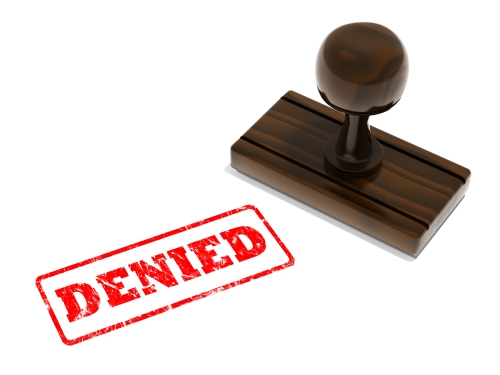“Had the Supreme Court granted cert, TCS argued that its ruling could have informed the entire nation’s framework of trade secret law on the appropriate measure of unjust enrichment damages.”
 On November 20, the U.S. Supreme Court denied a petition for writ of certiorari filed in Tata Consultancy Services Ltd. v. Epic Systems Corp. The denial leaves in place an appellate court decision awarding $280 million for unjust enrichment and punitive damages in a trade secret misappropriation case where the plaintiff suffered no economic harm and the defendant gained no actual benefit from the misappropriated information.
On November 20, the U.S. Supreme Court denied a petition for writ of certiorari filed in Tata Consultancy Services Ltd. v. Epic Systems Corp. The denial leaves in place an appellate court decision awarding $280 million for unjust enrichment and punitive damages in a trade secret misappropriation case where the plaintiff suffered no economic harm and the defendant gained no actual benefit from the misappropriated information.
Unjust Enrichment Awarded for TCS’s Avoided Costs Despite Lack of Harm or Benefit
Epic Systems sued Tata Consultancy Systems (TCS) in the Western District of Wisconsin, alleging that TCS gained unauthorized access to its web-based electronic health records (EHR) platform to create a comparative analysis with TCS’s own EHR software product. Despite failing to proffer evidence that the comparative analysis document was actually used to improve TCS’s rival product, Epic Systems was awarded $940 million in damages by the jury. These damages include $140 million in unjust enrichment in avoided development costs, based on Epic System’s costs in developing the software modules listed in TCS’s comparative analysis. The verdict also awarded punitive damages that were reduced during post-trial motions from $700 million to $280 million.
TCS’s petition for writ follows its second appeal to the U.S. Court of Appeals for the Seventh Circuit in the case. In August 2020, the Seventh Circuit issued a ruling affirming the $140 million unjust enrichment award on the basis that the jury could have concluded that the comparative analysis helped TCS evaluate its market entry strategy. Although the $280 million punitive damages award was struck down as violating due process, the district court entered $140 million in punitive damages on remand. That award was upheld in a five page order issued by a different Seventh Circuit panel this July.
Circuit Split Remains Over the Appropriate Measure of Unjust Enrichment Damages
In its cert petition, TCS argued that circuit courts were split on whether avoided costs can be awarded as unjust enrichment in trade secret cases where those costs bear no relationship to the plaintiff’s harm or the defendant’s gain. Along with the Seventh Circuit’s ruling in its own case, TCS notes that the U.S. Court of Appeals for the Third Circuit reached a similar conclusion in PPG Industries v. Jiangsu Tie Mao Glass (2022). In that case, although the Third Circuit found that Jiangsu obtained no commercial benefit and sold no products incorporating misappropriated technology, the appellate court affirmed a damages award that used PPG’s development costs as a proxy for costs avoided by Jiangsu in preparing for production.
The reasoning of the Third and Seventh Circuits was specifically rejected this May by the U.S. Court of Appeals for the Second Circuit in Syntel Sterling Best Shores Mauritius v. The TriZetto Group. In Syntel, the Second Circuit ruled that awarding avoided costs as unjust enrichment without corresponding harm to the trade secret owner “unhinges avoided costs from the [Defend Trade Secret Act]’s compensatory moorings and overlooks the remedial benefits, as here, of a timely injunction.” The recovery of avoided costs that are untethered to the plaintiff’s harm or defendant’s gain creates an impermissible risk of an unjust recovery for trade secret owners, the Second Circuit opined.
While the Second, Third and Seventh Circuits were technically construing different state and federal trade secret laws, courts have recognized that these statutes are each derivative of the Uniform Trade Secrets Act (UTSA). Had the Supreme Court granted cert, TCS argued that its ruling could have informed the entire nation’s framework of trade secret law on the appropriate measure of unjust enrichment damages. At minimum, TCS asked the Supreme Court to hold its petition until deciding on the cert petition filed in Syntel, which the Supreme Court denied on October 30.
Image Source: Deposit Photos
Author: Rangizzz
Image ID: 4540592

![[IPWatchdog Logo]](https://ipwatchdog.com/wp-content/themes/IPWatchdog%20-%202023/assets/images/temp/logo-small@2x.png)

![[Advertisement]](https://ipwatchdog.com/wp-content/uploads/2024/04/UnitedLex-May-2-2024-sidebar-700x500-1.jpg)
![[Advertisement]](https://ipwatchdog.com/wp-content/uploads/2024/04/Artificial-Intelligence-2024-REPLAY-sidebar-700x500-corrected.jpg)
![[Advertisement]](https://ipwatchdog.com/wp-content/uploads/2024/04/Patent-Litigation-Masters-2024-sidebar-700x500-1.jpg)

![[Advertisement]](https://ipwatchdog.com/wp-content/uploads/2021/12/WEBINAR-336-x-280-px.png)
![[Advertisement]](https://ipwatchdog.com/wp-content/uploads/2021/12/2021-Patent-Practice-on-Demand-recorded-Feb-2021-336-x-280.jpg)
![[Advertisement]](https://ipwatchdog.com/wp-content/uploads/2021/12/Ad-4-The-Invent-Patent-System™.png)






Join the Discussion
No comments yet.